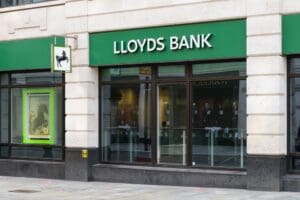Lloyds Bank is under renewed scrutiny after former clients and whistleblowers accused it of failing small businesses in the years following the 2008 financial crash, despite receiving a £20 billion taxpayer bailout designed to keep credit flowing to SMEs.
A joint investigation by the BBC and Panorama has heard allegations that Lloyds deliberately scaled back lending and wrongly categorised viable businesses as “distressed” to recoup funds more aggressively, potentially hastening their collapse.
Several business owners told the programme that their companies folded after being placed into the bank’s Business Support Unit (BSU) – a division that was ostensibly created to help firms in difficulty. Instead, they claim the BSU offered little genuine support and accelerated the closure of salvageable operations.
James Ducker, a former Lloyds employee who sold financial products to businesses in 2009, said the bank’s internal strategy after the crash became clear: “The approach to lending became: do not lend. Beyond that, get as much money back that we’ve lent as possible.”
He described customers referred to the BSU as “easy pickings” for a bank looking to reduce its exposure.
A whistleblower who worked for an external consultancy brought in by Lloyds to advise firms within the BSU echoed the claims, saying many of the businesses they encountered “probably weren’t distressed, they were salvageable.”
Speaking anonymously, the whistleblower accused the bank of “planning the administration of these entities in advance of reports that were produced.” They claimed business plans were ignored and no real effort was made to save the companies involved.
“There was a pattern,” the whistleblower said. “They weren’t interested in saving the company.”
The accusations strike at the heart of conditions imposed on banks during the crisis. Then-Prime Minister Gordon Brown had insisted that state-backed lenders must protect access to credit for small and medium-sized businesses – a critical segment of the UK economy.
In a statement, Lloyds Bank “categorically denied” the allegations, saying: “These historic allegations have been thoroughly investigated by the group and found to be unsubstantiated. Our Business Support Unit supported many thousands of customers.”
The latest revelations add to longstanding questions about how some banks treated SMEs in the aftermath of the crash – and whether government safeguards were properly enforced. For Lloyds, which has faced similar scrutiny in the past, these claims are likely to reignite calls for greater accountability and transparency over its post-crisis conduct.
Read more:
Lloyds accused of abandoning small firms as it cut lending after financial crash
















